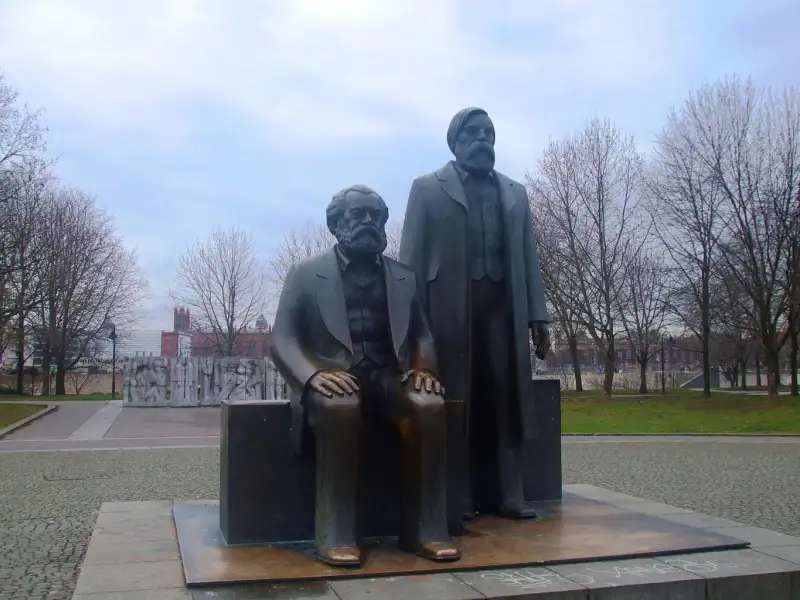Table of Contents
- Introduction
- Early Encounters and Influences
- Theoretical Collaboration
- Division of Labor in Their Partnership
- Intellectual Influence on Each Other
- The Sociological Legacy of Marx and Engels
- Conclusion
Introduction
The partnership between Karl Marx and Friedrich Engels is one of the most significant collaborations in sociological and political history. Their collective work laid the foundation for much of modern critical theory, particularly through their contributions to socialism, communism, and class analysis. Marx, a philosopher and economist, and Engels, a social scientist and industrialist, developed a unique partnership that blended theory and practice. This article will explore the dynamics of their relationship, how their intellectual collaboration influenced each other’s work, and the broader sociological impact of their partnership.
Early Encounters and Influences
Marx and Engels’ Backgrounds
Karl Marx and Friedrich Engels came from different social and intellectual backgrounds, yet these differences complemented each other. Marx was born in 1818 into a middle-class family in Trier, Germany. He pursued studies in philosophy and law, eventually focusing on political economy. Engels, on the other hand, was born in 1820 into a wealthy family of industrialists in Barmen, Prussia. His early exposure to the harsh realities of industrial life, particularly in Manchester, would deeply shape his sociological outlook.
- Marx’s Focus: Political economy, materialism, and class struggle.
- Engels’ Focus: Industrial conditions, working-class life, and practical aspects of socialism.
Their early encounters were intellectual, shaped by their involvement in radical political movements. Both men were initially involved with the Young Hegelians, a group of radical thinkers who sought to challenge the status quo of German philosophy and politics.
The Meeting of Minds
Marx and Engels first met in 1842, but it was not until 1844, when they reunited in Paris, that their intellectual collaboration took off. It was in Paris that they began to recognize the potential in combining their respective analyses of society. While Marx was more focused on abstract philosophical concepts like alienation and dialectical materialism, Engels brought practical insights from his observations of industrial capitalism in England.
- Marx’s philosophical rigor was complemented by Engels’ empirical observations of working-class life.
- Engels admired Marx’s depth in economic theory, while Marx valued Engels’ practical experience and understanding of the working class.
Theoretical Collaboration
The Development of Historical Materialism
One of the most important outcomes of their collaboration was the development of historical materialism, a theory that sees material conditions as the driving force behind historical development. While the seeds of this theory were already present in Marx’s earlier works, it was Engels’ influence and empirical research that helped solidify the framework.
- Historical materialism emphasizes the material conditions (e.g., modes of production) as the basis for understanding societal changes.
- This theory provided a scientific approach to studying human history, focusing on the economic base and its relationship with the superstructure (institutions, culture, politics).
Marx and Engels both contributed to this theory, but Engels played a key role in popularizing and simplifying the concepts for wider audiences.
The Communist Manifesto
Perhaps their most famous joint work is the Communist Manifesto, published in 1848. This pamphlet distilled their ideas about class struggle, the failures of capitalism, and the necessity of proletarian revolution into a clear and concise document. It remains one of the most influential political documents in history.
- Key Themes of the Manifesto:
- Class antagonism between the bourgeoisie (owners of production) and the proletariat (working class).
- The historical inevitability of class struggle leading to socialism and eventually communism.
- The call for the working class to unite globally against capitalist oppression.
While Marx is often credited as the principal author, Engels’ contribution in drafting and editing the document cannot be understated. Engels’ ability to simplify complex ideas made the Manifesto accessible to a broader audience.
Division of Labor in Their Partnership
Marx’s Theoretical Dominance
Although Marx and Engels collaborated closely, there was a clear division of labor within their partnership. Marx took the lead on developing the theoretical and philosophical foundations of their ideas. His Das Kapital remains one of the most significant works in political economy, analyzing the inner workings of capitalism and the exploitation inherent in the wage-labor system.
- Marx’s focus on economic analysis was influenced by classical economists like Adam Smith and David Ricardo.
- His concept of surplus value—the difference between what workers are paid and the value they produce—became a cornerstone of Marxist economics.
Engels’ Practical and Editorial Contributions
While Marx was preoccupied with theoretical work, Engels took on more practical and editorial responsibilities. He supported Marx financially, allowing him to continue his research and writing. Additionally, Engels wrote on a range of subjects that complemented Marx’s work, such as The Condition of the Working Class in England and The Origin of the Family, Private Property, and the State.
Get the full article AD FREE. Join now for full access to all premium articles.
View Plans & Subscribe Already a member? Log in.





